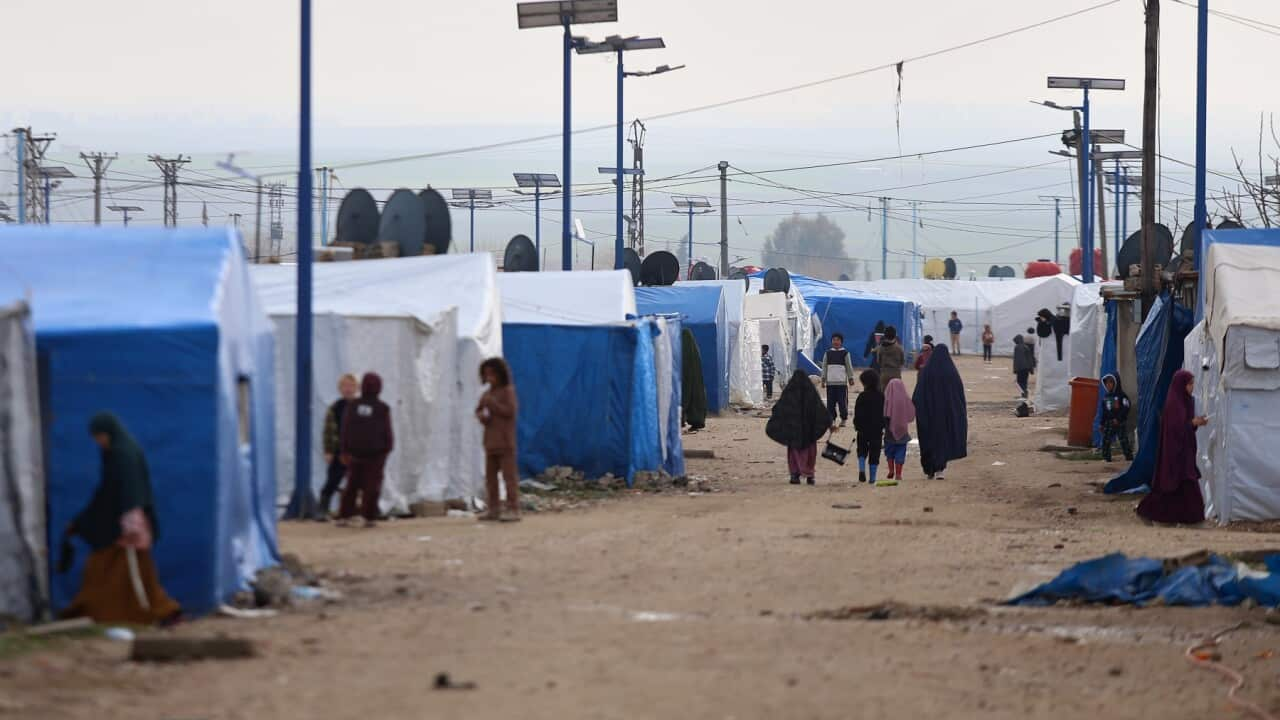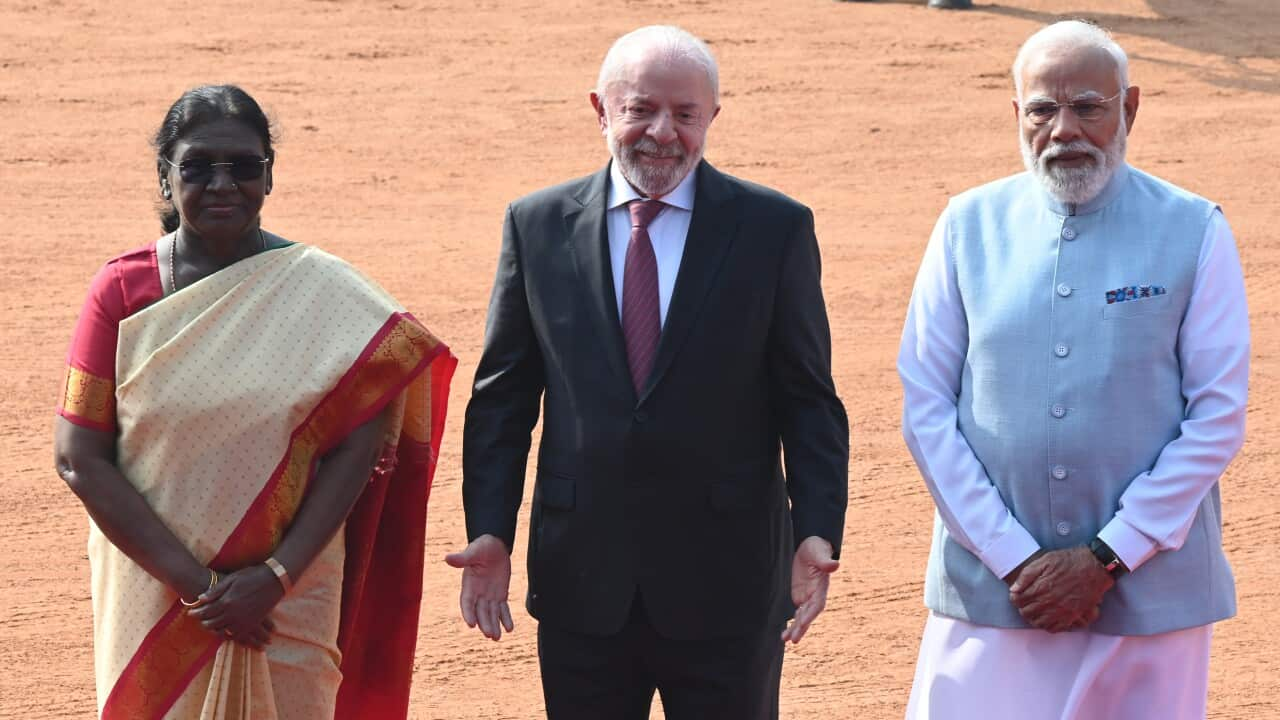(Audio in Hindi, transcript in English below)
India has for long battled female foeticide and the ‘unwanted’ girl child. But according to a recent study by Indian scholars, an entire community in one of the regional areas of India, has come to fore after naming their daughters – ‘Nakusa’ meaning unwanted.
While the word has its root in Marathi language, the practise of using it was found to be common throughout the entire district where 77 families were surveyed. Prof. TV Sekhar of the International Institute for Population Sciences in Mumbai studied the impact of living with a name that means 'unwanted'. He said the practise was common especially among parents who, without a male child, kept having kids. “It was observed that the third or the fourth daughter was named ‘Nakusa’ by their parents. It is largely prevalent in Satara, a district in Maharashtra state in India.”
The superstition in these rural regions is that naming a girl ‘Nakusa’ will end the chain of having female children. And the boy born after naming their daughter ‘Nakusa’ is often named after a god as a way of appreciation.
Prof. Sekhar carried out the research on the psychological impact of living with such a name with V P Shijith of IIT Hyderabad. The duo found that parents were not too concerned about the impact such a name would have on their child. “They weren’t concerned nor worried about how this would impact their child. All they wanted was an end to the female children.”
The researchers found Nakusas from the age of 4 to 48, indicating the practise has been around for decades.
Parents were found to have no qualms about naming their daughters with such a negative connotation.
Prof. Sekhar points out how India is still battling gender inequality. “Most parents in India still prefer sons over daughters.”
The psychological impact on these young girls is profound and deep points out Prof. Sekhar. “They realise the meaning of their name only in High School. They are humiliated and ridiculed by their peers. The psychological impact is very deep. Would they ever want to become mothers to a daughter in future?” questions the Professor.
Quite a few of these girls have changed their names in adulthood. But most of their official records still have their old name ‘Nakusa’, which is proving to be just as difficult to change as the mindset of the society, at large.
-----------------------------------------
Radio story abstract
India has for long battled domestic violence, dowry and female foeticide - the notion of ‘unwanted’ girl child! But not many people know the psychological dimension or deep roots of discrimination based on gender go deep down to the very concept of naming a girl child.
Recently it was revealed that an entire community in one of the regional areas in Maharashtra, India, is known for naming their second or third daughters – ‘Nakusa’ – which means ‘an unwanted girl’. This feature highlighted how this word has its root in Marathi language and Indian culture of patriarchy with inputs from Prof. T. V. Sekhar of the International Institute for Population Sciences in Mumbai.
The feature delves deeper into the superstitious practice of how in these rural regions the very act of naming a girl ‘Nakusa’ will end the chain of having girl child. While the parents are not too concerned about the impact such a name would have on their child.
This naming of a girl as unwanted in turn starts the whole new vicious cycle of domestic and psychological abuse of these girls who are humiliated and ridiculed by their peers. The feature highlighted how this is not a new practice but has been around for decades. And even after officially changing their names these girls and women largely remain ‘Nakusa’ – the unwanted girl child!
Radio story transcript in English
Shakespeare wrote: “What’s in a name?” But, what if, at the time of your birth, you are given a name that means ‘unwanted girl child’ – the pain and psychological impact of living with such a name can be agonizing.
India has for long battled gender discrimination, domestic violence, dowry, female foeticide and the ‘unwanted’ girl child.
A major role in gender related discrimination or physical and psychological violence has been played by India’s cultural, economic, and social traditions.
And this gender discrimination can be seen on many other levels. Such as – education, work, or marriage.
To understand the impact of naming a girl child ‘Nakusa’ or ‘Nakusi’, Professor T. V. Sekher of the International Institute for Population Sciences (Mumbai, India) along with his colleague Professor V. P. Shijith of the Indian Institute of Technology (Hyderabad, India) surveyed 77 families with girls named Nakusa in seven tehsils (districts) of Satara in Maharashtra (India).
Grab - Professor T. V. Sekher: “The naming of the girl, particularly if it happens to be the third or fourth girl, as Nakusa or Nakusi which in local language – Marathi – means ‘unwanted’ is mostly prevalent in rural districts of Maharashtra – concentrated in Satara and neighbouring districts. But if you look at the literature elsewhere in the country though it was not prominently seen or reported, I have heard my research friends sometimes from Tamil Nadu telling that even there the parents used to call their third or fourth daughter ‘vedampunoo’ meaning ‘unwanted daughter’ in Tamil.”
According to Professor Sekher, the problem of deprivation and discrimination is so deep-rooted in India’s patriarchal society that even woman (mother) become enemy of another woman (daughter).
Grab - Professor T. V. Sekher: “They (parents) are least bothered or not at all concerned about what the girl who has been named ‘Nakusa’ feel about it, how they were treated in the society, in their own schools, in their own community – they are less bothered about it! They are more bothered about or carried away by their superstitions.”
If we look or talk about the tradition of naming of newborn babies in India, maximum names are either taken from India’s ancient texts or epic tales.
But, a name like ‘Nakusa’ or ‘Nakusi’ is a direct result of India’s superstitious and stereotypical orthodox traditional practices.
This name is often given to those newborn girls whose parents believe that after her they will definitely be blessed with a baby boy!
But, again a baby girl is born – ‘Nakusa’!
Grab - Professor T. V. Sekher: “See, for them (parents) it is the cultural belief or a practice. Why they are naming her as ‘Nakusa’? Because there is a superstition or a belief that if they name this daughter as ‘Nakusa’ then next child will be a boy! So, they are working under that superstition and this practice is going on for so many decades or centuries.”
And then parents under these superstition again start believing that next child would be a boy.
Grab - Professor T. V. Sekher: “See India is a society known for our strong son preference for so many centuries. It is a well-known and well-documented fact that parents prefer to have son over daughter. In fact if you see one reason for high fertility in India is strong son preference because parents prefer to go on producing kids/children till they reach the desired number of sons. In fact, I come from South India and there is saying in South India that ‘having a daughter is like watering a plant in neighbours garden’. That means – she is not yours but you are spending your money on her education, marriage, dowry, and she will move to her in-laws house. Whereas, if you have a son, he will be taking care of you in your old age, he will be supporting you, and he is the best old age security one can have. That kind of a feeling, cultural feeling, apart from other religious reasons, strongly support most Indian families to have a son that ultimately leads to gender discrimination. There are many studies that clearly show that given a situation parents prefer to have a son. If you ask most couples - what is your preferred family type? Most of them would say two sons, some of them may say two sons and one daughter, but very rarely will you get an answer two daughter!”
Many parents told Professor Sekher that to run the household and family name a son is must!
Their wish for a son remains unfulfilled and the newborn girl child is named ‘Nakusa’ so God doesn’t give them a daughter again!
Grab - Professor T. V. Sekher: “Most of these girls realize the meaning and implications of this name when they reach a little higher level, high school level, or eighth standard onwards. Before this they have no idea what is the meaning and why that name was given to her.”
But when these girls start high school, the problems associated with naming take a serious turn!
Most school children, classmates and even the teachers start bullying and making fun of girls named ‘Nakusa’.
Grab - Professor T. V. Sekher: “It creates lot of psychological problems, humiliation for these women and she has to live with that name throughout her life. Ridiculed by the parents, the community and the society. An in fact one may say that this is a situation where young girls are betrayed by their own family! How you expect a girl who is named as ‘Nakusa’ in her life, throughout her life, ill-treated and humiliated by society, will she ever like to have a daughter in future?”
The patriarchal based wish to have a son added with orthodox superstitious practices in these districts of Maharashtra in India is the biggest reason behind ongoing gender discrimination.
But, if you are still thinking “what’s in a name?” Just change your name. Then you are wrong!
Because, even after officially changing their name a ‘Nakusa’ still remain ‘an unwanted girl child’!
Grab - Professor T. V. Sekher: “It is a name given to the girl from her birth till her death. In her school certificate, in her all the records – marks sheets, marriage certificates – everywhere the name ‘Nakusa’ is mentioned. Surprisingly, we found that even they were ready to change their names from ‘Nakusa’ to new names, the girls were given the opportunity to select a new name, and many of them selected very attractive names of well-known people , film starts and very good names. But parents continued to call them with the old names because they are habitual to that and even the villagers were used to calling them that. So, we found that changing the name did not had the much desired impact.”
Today, we need to bring a sea change in our thinking.
According to Professor Sekher this is only possible when every girl child gets her basic fundamental rights, such as education, health, work, and the equal respect and love from parents.
Grab - Professor T. V. Sekher: “You know, it is important that every individual whether it is a boy or girl needs to feel that they are wanted in the society. They should have an equal opportunity to study, work, to select a career in life, to select their life partner, and also to receive equal affection, care and love from their own family and their own parents. And if we are not able to provide that kind of an atmosphere then I don’t think this centuries old discrimination will disappear ever!”




